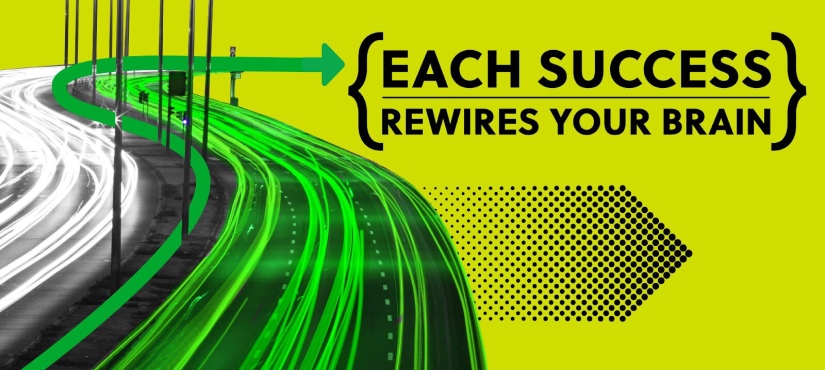Turn off the phone, tune into yourself, and be productive when it counts.
Have you ever found yourself staring at your phone or laptop, mindlessly checking social media or going down an internet rabbit hole when you’re supposed to be doing something else? So have I.
*Can you read this entire blog post?
85% of readers will not.
10% of those who do will skim some if not most parts. *
My name is [Izzy], and I’m addicted to information.
More specifically, I am addicted to the infinite and immediately available mental stimulation the internet offers in the form of information. And, according to scientists, I’m not alone. Information addiction is real, and is a perfect outlet for procrastination. After all, why would I want to perform some unpleasant task when I can sit and laugh at cat memes instead?
But procrastination can lead to negative consequences, from mental fatigue to missed deadlines that frustrate my manager. How did I become addicted to something so potentially destructive? And how do I recover for the sake of productivity? The answer to both questions is the same: neuroplasticity.

“What fires together wires together” — Donald Hebb
Neuroplasticity?
Neuroplasticity, discovered back in the 1940’s by Donald Hebb, is how the brain changes (for better or worse) in response to repeated experience.
“Heady” stuff? Here’s a real-world example you might relate to:
My first encounter with the internet was transformative. As I clicked away, my brain thought “this is new and this is awesome!” and released some dopamine to motivate me to seek that rush of unexpected discovery again (and again, and again). As hours of web surfing went by, I became less tolerant of enduring boring, difficult, or stressful tasks and began choosing distraction over productivity. In other words, I wired my brain for procrastination.
Yeah, yeah…I’ll finish reading this later
Procrastination is a fact of life. According to Piers Steel, author of The Procrastination Equation, about 95 percent of people admit to putting off work (perhaps the other 5 percent didn’t get around to completing the survey). So, it’s safe to assume you, like me, are a procrastinator at times…you might even be procrastinating now. The good news is we can learn ourselves out of procrastination the same way we learned ourselves into it — by taking small, consistent actions that offer our brain a reward.
Use your mind to change your mind
There are seemingly endless strategies to overcome internet-fueled procrastination. I found the process below especially helpful, and hope you will as well.
Accept reality
You’re going to procrastinate from time to time — you’re only human and can’t do it all. In fact, it’s possible that beating ourselves up leads to more procrastination, making it harder to be effective. Have self-compassion and recognize there is a time for procrastination before and after your task, but for now you must focus.
Disconnect from the internet
The internet and your smartphone will demand your attention subconsciously — you’ve trained your brain for that. Place your phone in another room, with notifications and sound off. If you have to work on your computer, turn Wi-Fi off.
Be mindful
Take a few minutes to observe your thoughts and emotions. I find mindfulness meditation, particularly breathing meditation, a great tool for insight. When I began meditating, I held the common belief that to meditate “correctly,” my mind had to become totally blank. But to be truly mindful is to be aware of yourself without judgment. Noticing my thoughts and the emotions around them helps me understand what needs to be done next.
Prioritize what’s important
If, while observing, you noticed fear or anxiety around starting (or not finishing) a particular task, pay attention. These emotions are a great indicator of why you’re procrastinating. Whether you think you’re unable to do something well or simply want to avoid having to deal with it at all, use this insight to prioritize your tasks, and make the decision to work on one that seems especially difficult. Remember, the goal is not only to finish a task, but to make it easier to be productive in the future. Accomplishing difficult tasks will bring you the positive feelings necessary to rewire your brain.
Focus on one thing at a time
Once you’ve decided where to begin, focus on how to organize the task into small pieces (SMART goals are a great tool here). Don’t think about multi-tasking — this is single-tasking. Keep your focus on one part of the task at a time to avoid being overwhelmed about the outcome of the final product and the work required to get there.
there.

Jump in
The hardest part of getting started is…getting started. A lot of this is because of the way we judge our thoughts — dismissing our efforts before giving them a chance to develop. Let go of your expectations and judgments and just BEGIN. Sometimes you can find a shortcut to help overcome the initial obstacles to productivity. For instance, templates are a great way to remove the stress of staring at a blank page. Every task likely has a similar hack to ease you into action.
Take a (timed) break
If you feel yourself getting overwhelmed, take a break. Set a timer for five minutes and do something else. You could return to breathing to clear your mind again, do some jumping jacks to get your blood flowing, or go outside for some fresh air — but do not allow yourself to check the internet or your phone.

CYA: Celebrate Your Accomplishments
When your task is finished, pat yourself on the back; you’ve earned some self-esteem. Procrastination is usually a response to the unpleasant feelings associated with a task. Rewiring your brain requires sending yourself different messages. Recognizing that you can move through difficult emotions and accomplish your tasks is crucial to replacing your negative thought patterns. Each success rewires your brain so that the next time you’re faced with a difficult task, you will approach it with more confidence, patience, and focus — and less urge to check your phone.
Don’t worry about perfection
Once your task is done, let it go. I could write this blog a million times, a million ways, and it would never be perfect — that’s just part of the deal. Accept imperfection, value the effort, and keep moving onto your next task.
Speaking of perfection, you likely won’t do any of these steps perfectly, but you’ll make progress. With repeated effort, you’ll become skilled at being productive when it matters, just like you became skilled at procrastinating. Be patient and kind to yourself as you grow. And, of course, give yourself a few minutes after you’re done with your task to hop on the internet for that sweet, sweet dopamine rush. Which reminds me, I was so busy writing this that I haven’t checked Facebook all day…
Written by Brian Daignault on October 4, 2018.
Original Post:
View at Medium.com

























